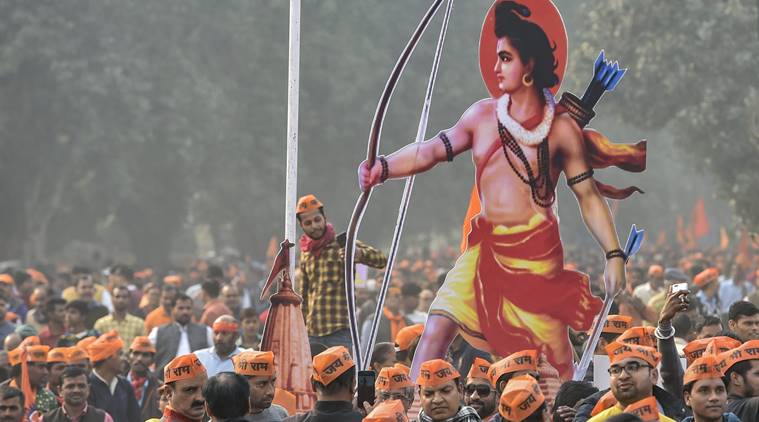Reconciliation with honour
What Ayodhya needs now is healing, not compromise.

While appreciating friend Apoorvanand’s strictures (‘A rotten compromise’, IE, February 6) following my suggestion (‘A new temple, a new mosque’, IE, February 6) for a possible settlement in Ayodhya, and welcoming his comment as a valuable contribution to a necessary debate, I must also respond frankly to him.
Let me reproduce, word for word, the core suggestion which I had advanced in the context of the Supreme Court readying itself to hear Ayodhya’s land-title dispute: “The bare bones of a settlement are not hard to identify. One, the Hindu side admits the error in demolishing the mosque. Two, the Indian state admits its failure to prevent the demolition. Three, the Muslim side acknowledges the Hindu community’s wish to see a Ram temple rise on the site as also the Hindu community’s belief that a temple had once stood where the Babri Masjid was built. Four, not far from the site, and yet not too close to it, space for a new mosque is made available by the Hindu side and the Indian state. If necessary, the four steps can be simultaneous. In this dream-like scenario, acknowledgment of wrongdoing and restitution leads to justice as well as reconciliation… Will Ayodhya’s disputing sides voluntarily come together as I have imagined? Very unlikely. But the Supreme Court can direct them to do so.”
To the question that has been asked — which (or what) is the Hindu side or the Muslim side that I speak of — the answer is at two levels. For the Supreme Court, the Hindu and Muslim disputants before it would represent the two sides. In the nation generally, those Hindus who want a temple constructed at the site where the mosque had stood until 1992 represent “the Hindu side” in the dispute, and those Muslims who want a mosque rebuilt on the site represent “the Muslim side”.
I recognise that a great many Hindus and Muslims in the land would agree to any settlement irrespective of where a temple or mosque is built or rebuilt, but it is the divide between the Hindu and Muslim “sides” as defined above that needs to be bridged.
An impossible goal? Perhaps. But not more impossible than the other aims that are routinely discussed — for example ending pollution, corruption, hunger and disease.
It should be noted that the word “compromise” was not used in my proposal, neither in the lines reproduced above nor elsewhere. The word “settlement” was employed, as also the phrase “acknowledgment of wrongdoing and restitution”. Equally importantly in my proposal is that the state would be a key party to a settlement and to the acknowledgment of wrongdoing and restitution.










.png)




























No hay comentarios:
Publicar un comentario